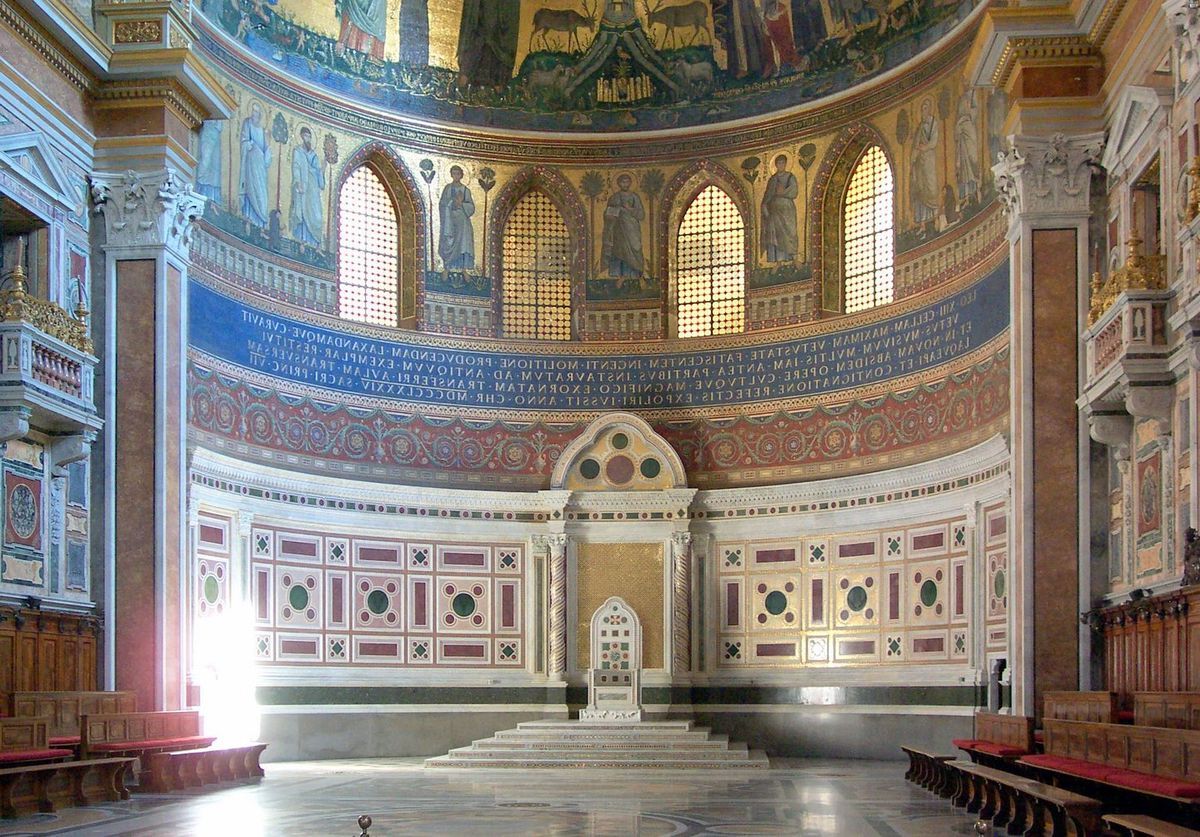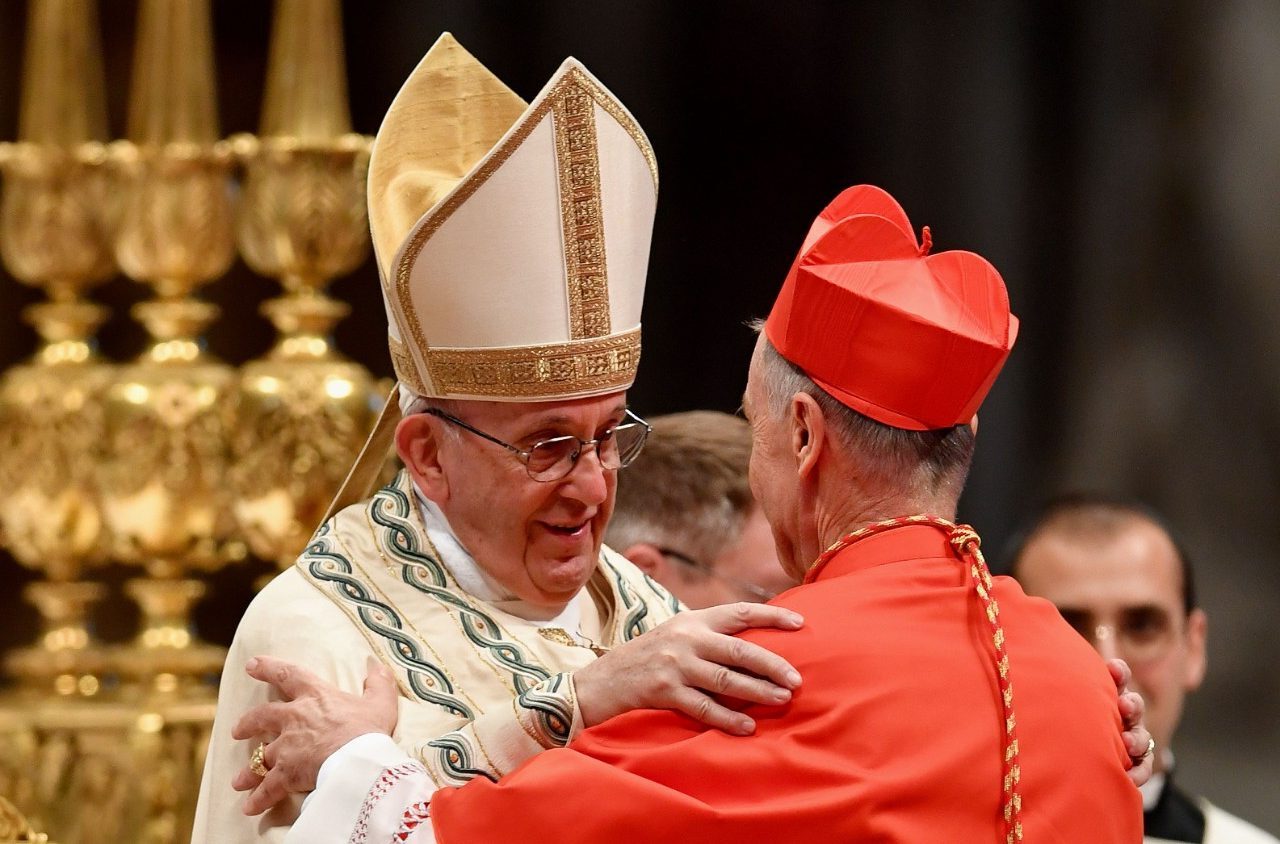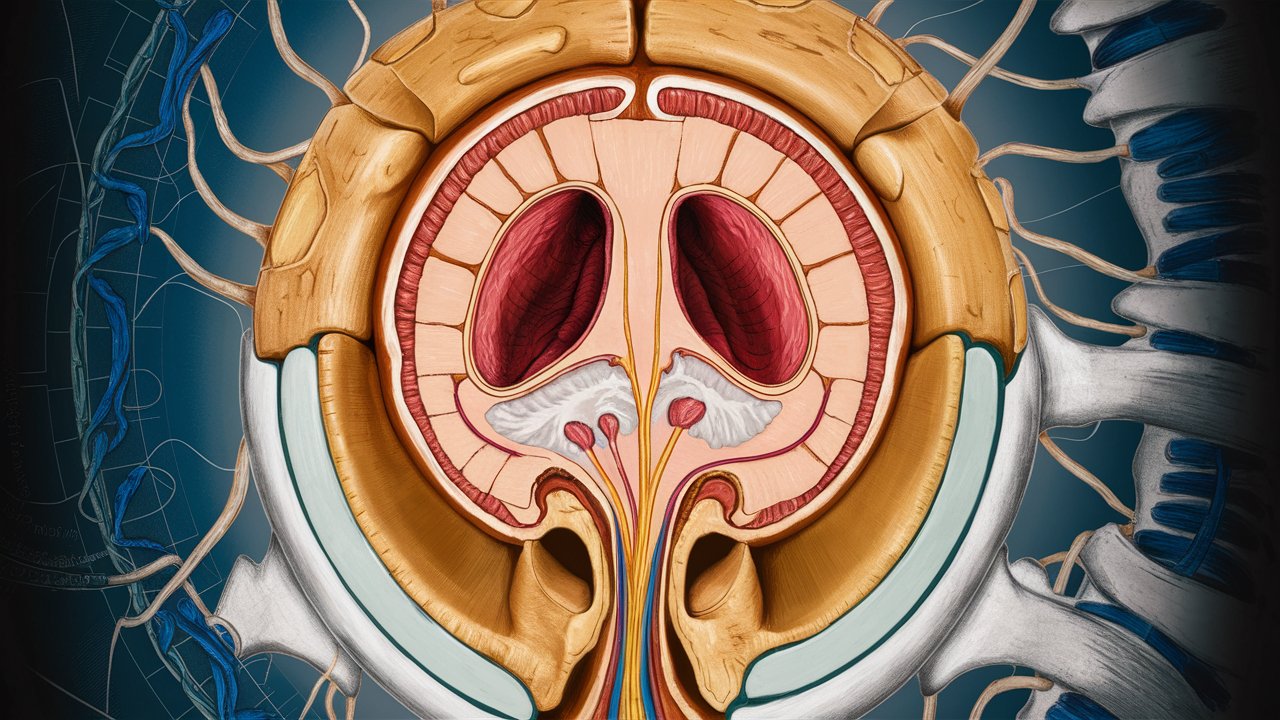
Ever wondered what "Ex Cathedra" means? This Latin phrase translates to "from the chair" and refers to official declarations made by the Pope. These statements are considered infallible and are a cornerstone of Catholic doctrine. But there's more to it than just papal pronouncements. Did you know that "Ex Cathedra" also has roots in ancient Roman traditions? It symbolizes authority and leadership, extending beyond religious contexts. From historical significance to modern-day applications, this term has a rich and varied history. Ready to dive into 30 intriguing facts about "Ex Cathedra"? Let's get started!
What Does Ex Cathedra Mean?
Ex Cathedra is a Latin phrase meaning "from the chair." It refers to the authority of the Pope when he speaks on matters of faith and morals. This concept is central to understanding the infallibility of the Pope in the Catholic Church.
- Ex Cathedra means "from the chair" in Latin, symbolizing the Pope's authority.
- The term is used when the Pope speaks on faith and morals with the intention of making a definitive statement.
- This concept is rooted in the belief that the Pope, as the successor of Saint Peter, has a special role in guiding the Church.
Historical Background of Ex Cathedra
The idea of Ex Cathedra has a rich history that dates back to the early days of the Church. Understanding this background helps to appreciate its significance.
- The concept of Ex Cathedra was formally defined in 1870 during the First Vatican Council.
- Before its formal definition, the idea was implicitly understood and practiced by the early Church.
- The First Vatican Council declared that the Pope is infallible when speaking Ex Cathedra on matters of faith and morals.
Examples of Ex Cathedra Statements
Throughout history, there have been a few notable instances where the Pope has spoken Ex Cathedra. These statements are considered infallible and binding for all Catholics.
- One of the most famous Ex Cathedra statements is the Immaculate Conception of Mary, declared by Pope Pius IX in 1854.
- Another significant Ex Cathedra statement is the Assumption of Mary, declared by Pope Pius XII in 1950.
- These declarations are considered infallible and must be accepted by all members of the Catholic Church.
Theological Significance of Ex Cathedra
Ex Cathedra statements hold great theological importance within the Catholic Church. They are seen as a way for the Pope to provide clear and definitive teachings on crucial matters.
- Ex Cathedra statements are believed to be guided by the Holy Spirit, ensuring their infallibility.
- These statements help to clarify and define key doctrines of the Catholic faith.
- The concept of Ex Cathedra underscores the unique role of the Pope as the supreme teacher and guardian of faith.
Misconceptions About Ex Cathedra
There are several common misconceptions about Ex Cathedra that can lead to confusion. Clearing up these misunderstandings is essential for a proper grasp of the concept.
- One misconception is that the Pope is always infallible. In reality, infallibility only applies when he speaks Ex Cathedra on faith and morals.
- Another misconception is that Ex Cathedra statements are frequent. In fact, they are quite rare.
- Some people mistakenly believe that Ex Cathedra means the Pope cannot make mistakes. However, infallibility is limited to specific conditions.
Impact of Ex Cathedra on the Catholic Church
The concept of Ex Cathedra has had a profound impact on the Catholic Church, shaping its teachings and practices over the centuries.
- Ex Cathedra statements have helped to unify the Church by providing clear and authoritative teachings.
- These statements have also played a role in addressing and resolving theological disputes within the Church.
- The concept of Ex Cathedra reinforces the Pope's authority and his role as the spiritual leader of Catholics worldwide.
Criticisms and Controversies Surrounding Ex Cathedra
Despite its importance, the concept of Ex Cathedra has faced criticism and controversy, both within and outside the Catholic Church.
- Some critics argue that the idea of papal infallibility is incompatible with modern notions of authority and democracy.
- Others believe that Ex Cathedra statements can stifle theological debate and dissent within the Church.
- There have been instances where Ex Cathedra declarations have been met with resistance and disagreement among Catholics.
Ex Cathedra in Modern Times
In the contemporary world, the concept of Ex Cathedra continues to be relevant, though its application remains rare.
- Modern Popes have been cautious in making Ex Cathedra statements, recognizing their weight and significance.
- The last Ex Cathedra statement was made in 1950, highlighting its infrequent use.
- Despite its rarity, the concept remains a vital part of the Catholic Church's understanding of papal authority.
Ex Cathedra and Ecumenism
The concept of Ex Cathedra also plays a role in the Catholic Church's relationship with other Christian denominations and religions.
- Ex Cathedra statements can sometimes be a point of contention in ecumenical dialogues.
- However, they also provide a clear and definitive articulation of Catholic beliefs, which can aid in mutual understanding.
- The Catholic Church continues to engage in ecumenical efforts while upholding the principles of Ex Cathedra.
Future of Ex Cathedra
Looking ahead, the concept of Ex Cathedra will likely continue to evolve as the Catholic Church navigates new challenges and opportunities.
- Future Popes may make Ex Cathedra statements in response to emerging theological or moral issues.
- The concept will remain a cornerstone of the Catholic Church's understanding of papal authority.
- As the Church grows and changes, Ex Cathedra will continue to play a crucial role in guiding its teachings and practices.
Final Thoughts on Ex Cathedra
Ex Cathedra, a term rooted in Latin, means "from the chair." It signifies authoritative statements made by the Pope in the Catholic Church. This concept highlights the Pope's infallibility when proclaiming doctrines on faith and morals. It's fascinating how this term has evolved and been used in various contexts beyond religion.
Understanding Ex Cathedra helps grasp the depth of Catholic teachings and the Pope's role. It underscores the importance of authority and tradition in shaping beliefs. Whether you're a history buff, a religious scholar, or just curious, knowing about Ex Cathedra enriches your knowledge of the Catholic Church's structure and influence.
So, next time you hear "Ex Cathedra," you'll know it's not just a fancy phrase but a significant concept with deep historical roots. Keep exploring and learning!
Was this page helpful?
Our commitment to delivering trustworthy and engaging content is at the heart of what we do. Each fact on our site is contributed by real users like you, bringing a wealth of diverse insights and information. To ensure the highest standards of accuracy and reliability, our dedicated editors meticulously review each submission. This process guarantees that the facts we share are not only fascinating but also credible. Trust in our commitment to quality and authenticity as you explore and learn with us.


